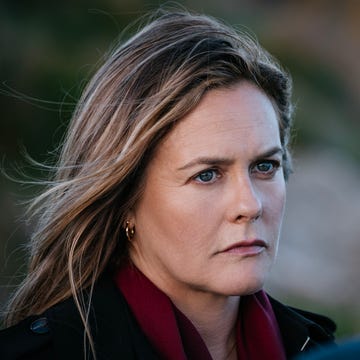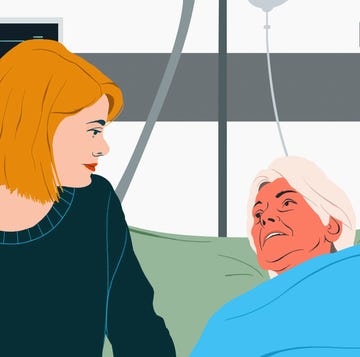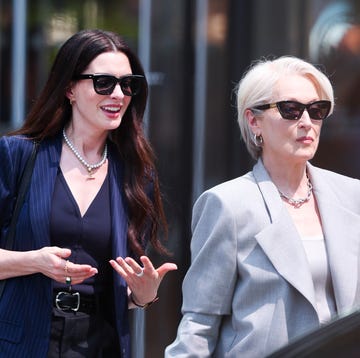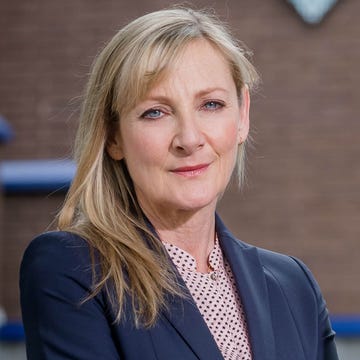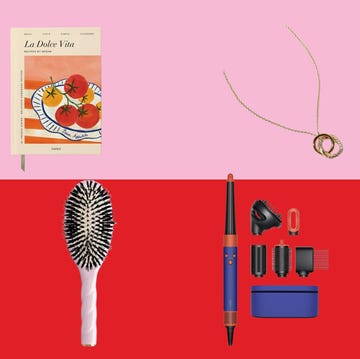My new life began on a bench. An ordinary wooden bench in the scruffy inner-city park behind my house. It’s the kind of place where teens hang out and smoke marijuana. Where knackered parents push toddlers on rusting swings and dogs sniff each other while their owners fumble with scented plastic bags. It smells of pee and pavement. At dusk, the graffitied metal gate is padlocked.
To this paradise, then, I went on a hot summer’s day in lockdown to meet an old friend. She lives round the corner but we hadn’t seen each other in a while – partly because of the pandemic but really because I’d been dodging her texts, sending her calls to voicemail. I’d just been made redundant and I couldn’t face anyone. I was too sad. Too ashamed. Humiliated. Lost. It sounds mad now but in the aftermath of being let go, I felt like I had died. There was the same finality.
One moment, all was normal. I’d come back from lunch, waved cheerily to my team and headed up to a meeting with the top boss, full of plans for the next few months. Then I was out. Whacked. My world stopped in that moment. In the ensuing months, my mind kept returning to those minutes in the boss’s office like a moth to a flame. I’d be lying in bed and find myself back there, my heart racing. I was unable to process what had happened. How everything that had been familiar was over. That it was all gone. Afterwards I was in freefall, disorientated. I couldn’t stop crying. The only place that felt safe was home; in bed, binge-watching The Crown. But that day, my friend insisted… and I hadn’t the strength to resist.
When I got to the park, red eyes hidden by big gold sunglasses, she was already on the bench. Next to her was a Tesco carrier bag. ‘Look! Pimm’s!’ She cracked open a tin and offered me one, too. I took a long, warm, sugary swig. It was noon, on a Monday. It felt like rock bottom. ‘How are you? I haven’t seen you since…’ She trailed off. No one wanted to say the word. It was a bit like a death.
I tried to be cheerful. It’s my trademark. But the upbeat words just wouldn’t come. I felt awful. On top of losing my job, I’d had covid and was physically weak and frail. I was staring down the barrel of my 50th birthday and felt every one of those long years. My eldest daughter was about to go to uni, leaving a yawning hole in my home. I was worried about money (I’d always been the main breadwinner and, now that I didn’t have a job, I was racked with anxiety about what came next for all of us).
Even worse, all the inner doubts and gremlins – many from my childhood – which had been silenced by busyness, by worldly success, were now raising their painful heads.
During that time, my brain felt full of whirling knives, each thought worse than the one it replaced. I felt like I was unravelling – in bright sunlight, on a bench with my friend, glugging a tin of tepid Pimm’s. I hiccupped and coughed, snotting my way through a pile of tissues. And do you know the best thing about that day? My friend didn’t say: ‘You’ll bounce back!’ or ‘It’ll all be fine!’, like everyone else had. Quietly, she was just there, passing me tissues, patting my arm. Letting me feel my loss and my pain. There are times when we don’t want to be fixed, we just want to be witnessed. To be held. To be heard.
‘We can’t go over it. We can’t go under it. Oh, no! We’ve got to go through it.’ Like the children in Michael Rosen’s We’re Going On A Bear Hunt, who must swim across a river, splosh through mud and swish through long grass, there’s no shortcut through the grief that accompanies the end of one life phase and the beginning of another. Just endurance.
What is for sure is that whatever has propelled us through the last 25 years of our life will end at around 50. Whether it’s the termination of a career, or a marriage, having to face illness – our own, or that of a child or parent – or bereavement or an empty nest, whatever shape our own midlife maelstrom (or midlife clusterfuck) takes, it often all hits at once and manifests as a kind of death that blows away everything we’ve known. In that moment, many of us feel like it’s all over. That what we were has died. That it’s the end.
If that sounds familiar, please don’t despair. What I’ve learned from my own experience and seen in all the thousands of midlife women who I’ve talked to is that if we wait, if we are kind to ourselves and allow ourselves to sit in the dark and reflect and regenerate and, particularly when we engage the loving encouragement of family, friends and a supportive new community to help us into this next phase, then we can flourish again.
It’s not easy. At the beginning, the path is steepest. The way ahead is unclear. Anxiety stalks us. Tears are legion. Our minds keep coming back to the loss, the pain, like worrying the hole in your mouth after a tooth extraction. It’s horrible. It’s painful. And inescapable.
I remember taking myself to a qigong class (like tai chi but easier) and at the end of the two-hour workshop (yup, not something I’d ever really done before, but hell, I had time on my hands ...) the instructor asked us all to say how we felt. He went around the class. The woman next to me said mystically she could feel energy charged between her hands crackling like rainbows (yeah, right). A bloke quoted something wise from a Chinese text.
I was so choked up I couldn’t speak. I also didn’t have a hanky so was covered in teary snot. I mumbled something about having had some bad news and finding the transition tricky. The teacher nodded and said, matter-of-factly, ‘Change is difficult’ before walking back to the front of the room. I am sure he had no idea what he’d done. But all I can say is that his words were a tonic.
He was the first person who had acknowledged where I was. That I was finding the change unbearably tough. That it was difficult. That I was a snotty, snivelling mess. Not coping at all. He was the first person who gave me permission to not be okay. Who acknowledged I was in a real hole and finding it tough. His recognition of where I found myself, his casual acceptance of it as fact, was a sweet relief. It was like hitting the bottom of a swimming pool and feeling concrete beneath my feet so that I could push back up.
Change is difficult. With those words I stopped feeling ashamed and furious about how pathetic and weak I was being and, for the first time, I felt a little sympathy for myself. I accepted where I was: in a state. That I wasn’t a failure for finding it tough. It was tough. And humiliating and worrying and disorientating. The shift was being told it was okay – even normal and acceptable – to find it so.
So that is what I hope these words will do for you, too. Repeat them to yourself: Change is difficult. Pat yourself on the back that you are getting through it. Allow yourself to feel all of it. Sob on your friends, partner, family or children (mine got so used to me being teary that they’d joke about ‘what the mum weather was like’ that morning: drizzle, hard rain, deluge …). Remember, there are no quick fixes; that, like the first time you had your heart broken, only time can make it better. And that this phase will pass.
Extracted from Much More To Come by Eleanor Mills (HQ, £16.99); out now.

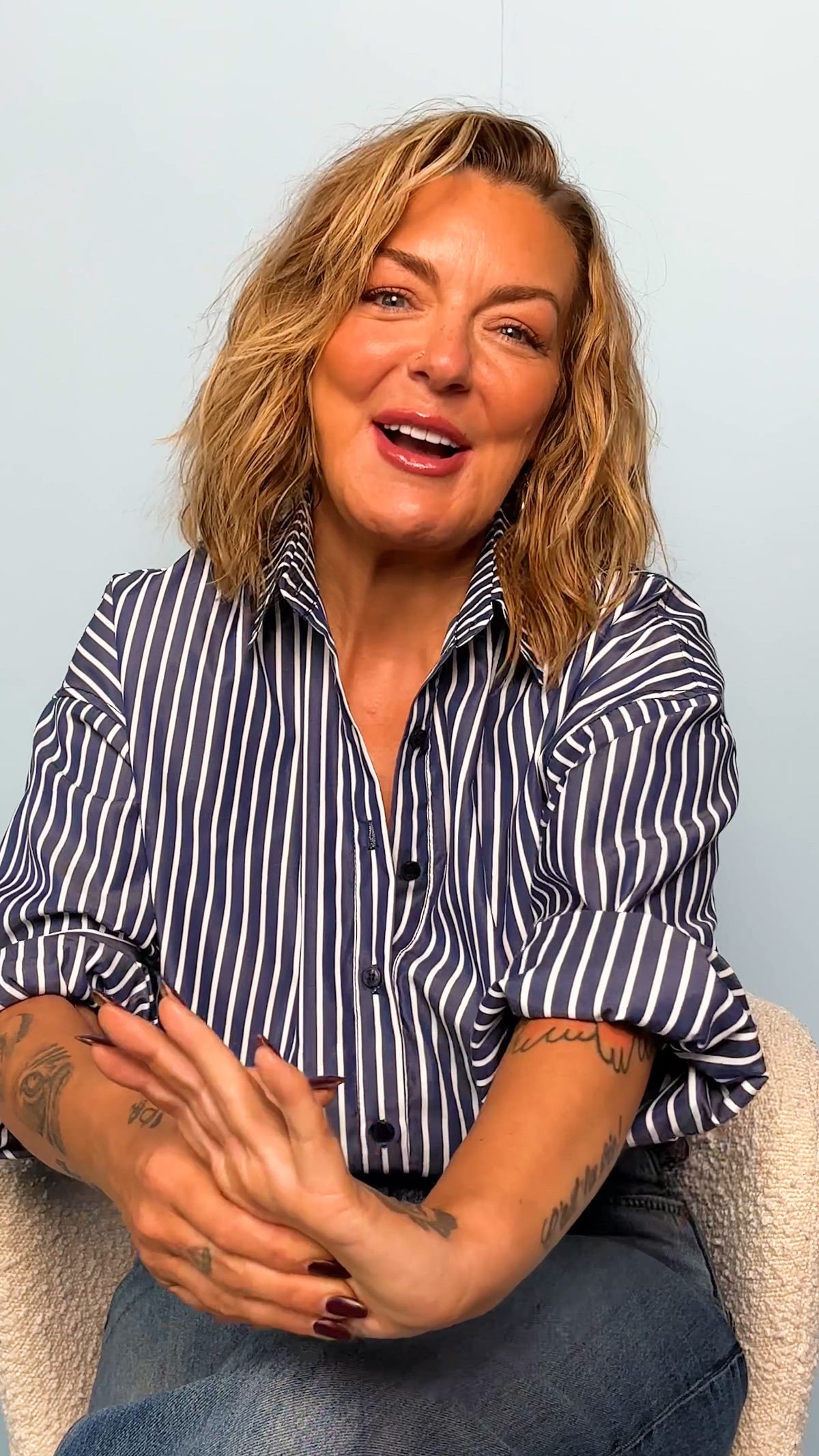
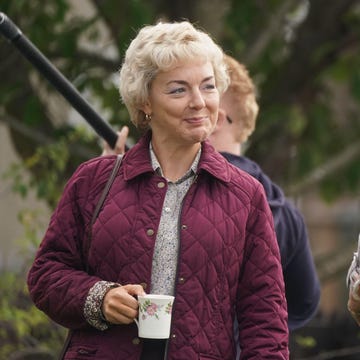

![©ITV from monumental television frauds sr1pictured: jodie whittaker as sam suranne jones as bert this photograph is (c) itv plc/ monumental television and can only be reproduced for editorial purposes directly in connection with the programme or event mentioned above, or itv plc. this photograph must not be manipulated [excluding basic cropping] in a manner which alters the visual appearance of the person photographed deemed detrimental or inappropriate by itv plc picture desk. this photograph must not be syndicated to any other company, publication or website, or permanently archived, without the express written permission of itv picture desk. full terms and conditions are available on the website www.itv.com/presscentre/itvpictures/termsfor further information please contact:michael.taiwo1@itv.com](https://hips.hearstapps.com/hmg-prod/images/frauds-sr1-first-look-03-6891d81c2d536.jpg?crop=0.428xw:0.643xh;0.0641xw,0.116xh&resize=360:*)


